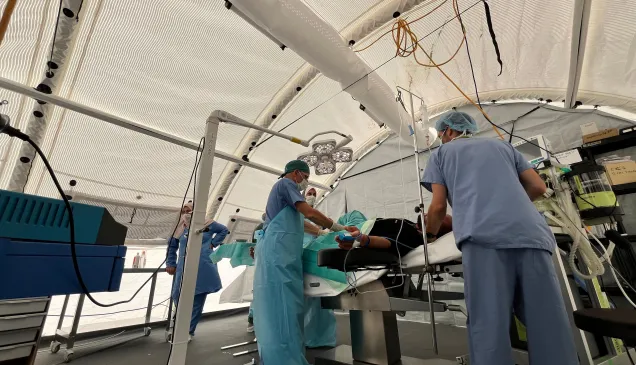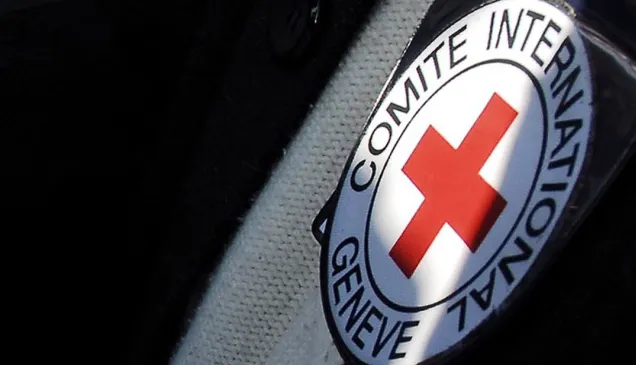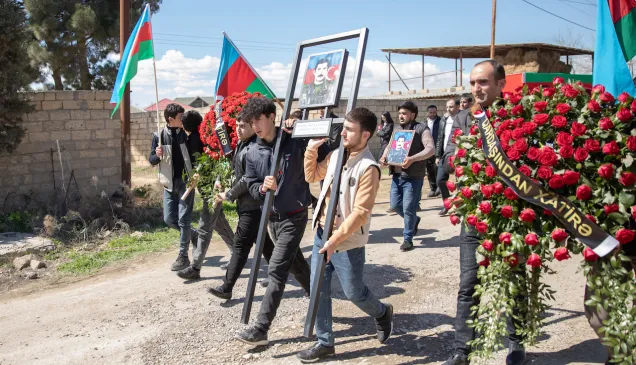Ukraine crisis: ICRC activities up to end of August

The ICRC has a delegation in Kiev, offices in Donetsk, Kharkiv and Odessa and sub-offices in Severodonetsk, Lugansk and Mariupol. We currently have some 90 staff in the country, and are deploying additional specialists as necessary.
Unless otherwise stated, the activities listed below took place in August 2014.
Key activities in August
During August, the ICRC:
- distributed over 120 tonnes of food donated by the Ukrainian authorities to displaced persons in the Lugansk region;
- distributed cash vouchers to 2,000 displaced families in the Kharkiv region, who can use them to purchase goods at local shops;
- supported the treatment of people injured in the fighting;
- provided insulin for some 300 diabetic patients;
- set up an “I am alive” message service for people in Lugansk, so they could reassure worried relatives;
- opened a sub-office in Severodonetsk in order to better assist people in the Lugansk area
Dialogue with the authorities and parties to the conflict
The ICRC has sought dialogue with all parties to the conflict on the conduct of hostilities, urging them to make sure that attacks were not directed against civilians or civilian objects.
Working with the Ukrainian Red Cross Society
The ICRC:
- worked with the Ukrainian Red Cross to provide food, medical care and restoring family links services;
- helped the Ukrainian Red Cross expand its ability to administer first aid and provide other humanitarian services in emergencies.
Dialogue with the armed and security forces and with police
The ICRC has conducted a series of workshops for the security forces in Ukraine. Participants included National Guard officers, Ukrainian Armed Forces officers and legal advisers, and other military personnel. The aim is to establish a dialogue with the authorities and to inform the participants about the ICRC and about the basic rules of international humanitarian law.
In August, the ICRC held a two-day workshop for 23 operational officers and legal advisors of the Airmobile Brigade located in Mykolaiv.
Donbass region
Working with the Ukrainian Red Cross, the ICRC has been bringing much-needed medical, food and other aid into the Donbass region of eastern Ukraine, particularly around Lugansk, Donetsk and Mariupol.
Medical
The ICRC:
- delivered extra surgical supplies to hospitals in urban areas:
- delivered extra first-aid items to facilities in more remote areas:
- provided hospitals with forensic material to help in the handling of bodies and to preserve the dignity of the dead;
- will be sending a surgical team to Lugansk in September.
- worked with the Ukrainian Red Cross to provide medical supplies for more than 25 health facilities in the Donetsk, Lugansk and Kharkiv regions;
- supplied hospitals and first-aid posts in the Donetsk, Sloviansk, Kramatorsk, Mariupol, Krasnyi Lyman, Lugansk, Lysychansk, Rubizhne, Izium and Kharkiv regions with supplies they urgently needed in order to treat the wounded;
- started more regular support to hospitals which have received several hundred war-wounded;
- provided a number of hospitals with insulin for the treatment of some 300 diabetic patients, including those living Lugansk.
Food and other aid
The ICRC:
- acted as a neutral intermediary to facilitate aid transports into the region;
- distributed food and other aid to residents and displaced people across the region;
- worked with the Ukrainian Red Cross to distribute over 110 tonnes of food (mainly fruit and vegetables) to over 20,000 displaced persons in 15 towns in the Lugansk region via hospitals, shelters and an orphanage;
- provided vouchers to displaced people with which they could buy goods at local shops, with some 2,000 families in the Kharkiv region and in Mariupol receiving vouchers during August;
- provided other aid to particularly vulnerable displaced people in Odessa and Mariupol;
- facilitated the delivery of aid from Russia.
Water, sanitation and shelter
The ICRC:
- assessed needs for repairs to damaged housing and water systems;
- started procurement of construction materials (glass, cement and roofing materials) plus fittings and pipes for the water network.
Local authorities will use materials supplied by the ICRC, helping hospitals and centres for displaced persons prepare for the coming winter.
Restoring family links
The ICRC is working with the Ukrainian Red Cross to help people who have lost contact with a relative as a result of the conflict.
Once the ICRC returned to Lugansk, we enabled people to send some 60 “I am alive” messages to their relatives elsewhere.
Forensics
- Following the Malaysia Airlines crash on 17 July, the ICRC distributed body bags and other equipment for managing dead bodies, and offered its forensic advice to ensure that proper standards were followed.
- The ICRC helped the Lugansk Branch of the Ukrainian Red Cross to collect bodies in the towns of Shchastya and Metalist.
- We provided forensic material to a number of hospitals in the areas affected by conflict in order to help in handling bodies and preserving the dignity of the dead.
Weapon contamination
The intense fighting has left a considerable amount of unexploded ordnance (UXO) such as shells. The ICRC has deployed specialized delegates to assess the situation and has started an emergency awareness campaign informing people of the risks from UXO and landmines.
Detainee welfare
The ICRC continues its representations to all parties to the conflict aimed at obtaining access to everyone detained in connection with the conflict and violence.
The purely humanitarian aim of these visits is to assess the conditions in which people are being held and the treatment they receive. The details of the visits remain confidential.
Crimea
On the basis of an assessment in June, the ICRC and Red Cross branches in Crimea provided food and other aid to people displaced from the south-east of Ukraine. The aid included household essentials, tents, mattresses, sheets, hygiene kits, baby food and food kits. Overall, over 19 tonnes of food and about 6 tonnes of other items were distributed.
In August, some 8,500 people living in private homes and collective centres received food and/or other aid.
Rostov region
The ICRC:
- provided technical support to the local Russian Red Cross branch in Rostov as they help displaced people staying with families in the region;
- helped transport injured Ukrainian soldiers as they were repatriated to Ukraine.
Northern Caucasus
- In July, with support from local Russian Red Cross branches, the ICRC assisted people displaced from Ukraine who had taken refuge in the northern Caucasus.
- In Dagestan, over 300 displaced persons received food, clothes, hygiene requisites and other items.
- In Kabardino-Balkaria, 150 displaced people were able to contact family members in Ukraine by mobile phone.
- In the Chechen Republic 60 people received cash grants to cover their basic needs.



